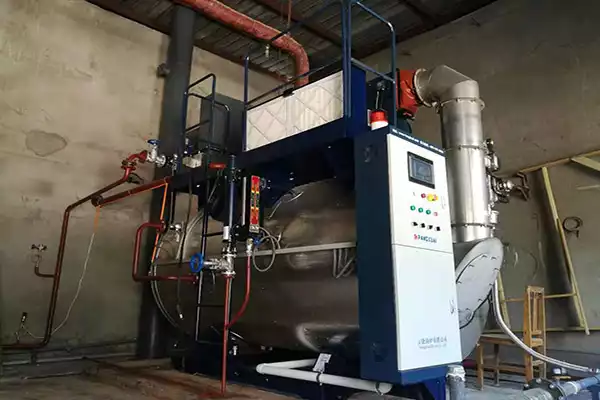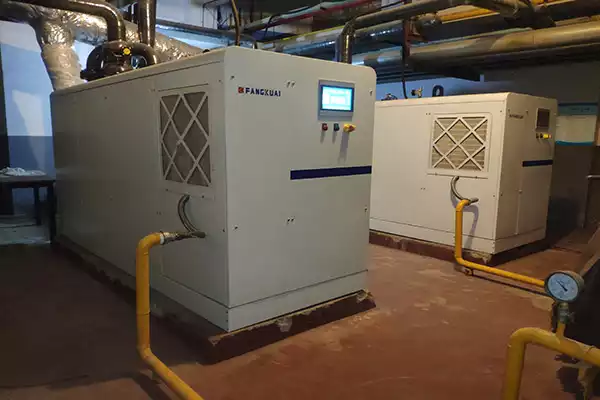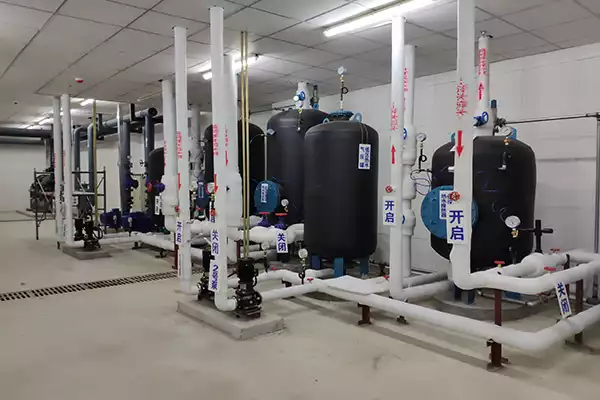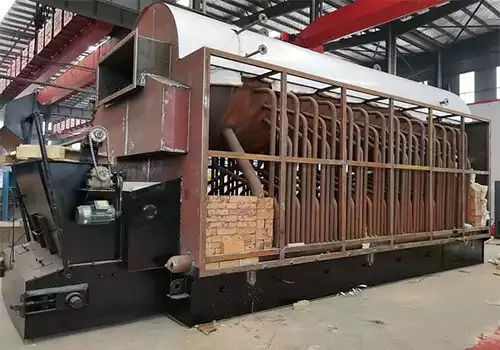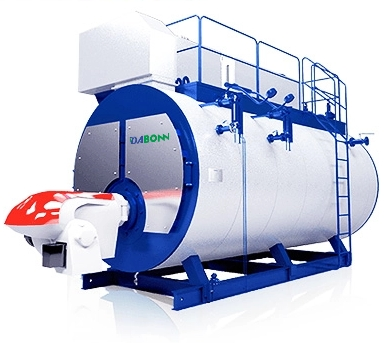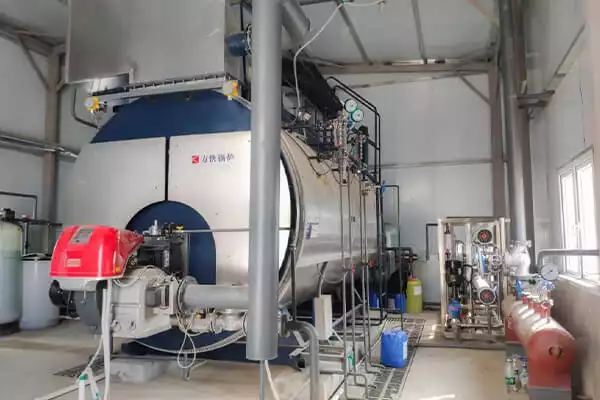
Introduction
When it comes to replacing your old oil-fired boiler, you have a variety of options to choose from. Each option has its own set of advantages and considerations. Let’s explore 15 alternatives to oil boilers to help you make an informed decision.
Gas Boilers
Gas boilers are the most popular replacement for oil-fired boilers. They’re easy to install and can be used for both heating and hot water, so if you have an existing system that uses oil, it’s a great option for you. Gas boilers are also cheaper to run than oil-fired boilers as well.
In addition to these benefits, gas boilers come in many different shapes and sizes so you can choose one that meets your needs exactly.
LPG Boilers
If you’re looking for a replacement for an oil-fired boiler, and the cost of installing a new one is too much, then LPG boilers are an excellent option.
They can be installed in homes with existing central heating systems and they’re generally smaller than oil-fired boilers. This makes them ideal if you have limited space or simply want something that will fit into the same place as your current central heating system.
Because LPG boilers run at lower temperatures than other types of fuel (such as natural gas), there are lower running costs associated with LPG boilers compared to their competitors like oil or gas-fired ones.
Propane Boilers
Propane is a clean-burning, cost-effective fuel source that works well for small to medium-sized homes. Propane is generally more expensive than other fuels like oil or natural gas but has the advantage of being easier to transport and store. Some homeowners use it as an alternative heating source when they want to avoid having an oil tank installed in their home.
Propane boilers are also ideal for homes with limited space or those that need to be installed outdoors because they’re more compact than oil-fired models.
However, there are some downsides associated with using propane as well: It’s more volatile than other types of fuels because it has a low boiling point. This means your system could experience more wear and tear than if you used another type of fuel like natural gas!
Hydrogen-ready Boilers
Hydrogen-ready boilers are a good replacement for oil-fired boilers because they are more environmentally friendly, quieter, and use less energy.
Hydrogen is a clean fuel that produces no harmful emissions. In fact, it’s one of the only sources of energy that doesn’t contribute to global warming or air pollution. Making it an ideal choice for heating your home with minimal impact on your health and the environment.
When compared to other heating methods like electric radiators or space heaters (which use electricity), hydrogen-powered systems offer many benefits:
- Lower installation costs since there’s no need for ductwork.
- Reduced noise levels thanks to their quiet operation.
- Increased safety with their automatic shutoff feature in case of overheating.
- Ease of maintenance thanks to filters being removable from outside access points.
Electric Boilers
Electric boilers are a popular choice for homeowners who want to replace their existing oil-fired boilers. They are more efficient than oil-fired boilers, they cost less, and they’re quieter too. They can be able to be installed anywhere in your home.
Electric boilers use electricity to heat water instead of burning fuel like oil or gas–so they don’t produce any air pollutants at all. This makes them ideal for those who want to reduce their carbon footprint by lowering their energy costs. It also means you won’t have any unpleasant smells in your home (like those associated with burning fossil fuels).
Although An electric boiler may cost slightly more upfront than other types of heating systems it’s worth it when you consider how much money you’ll save over time on energy costs.
Heat Pumps
Heat pumps work by transferring heat from one place to another without moving any matter (such as water or air). They use refrigerant gas that has been pressurized and expanded, causing it to change phase from liquid to vapor. The refrigerant then absorbs heat from its surroundings as it evaporates back into its gaseous state.
- They use about 70% less energy than traditional systems do while still providing plenty of heating power when needed.
- Heat pumps require no fuel source other than electricity so you don’t have to worry about running out.
- They’re also much cleaner than traditional systems since they don’t produce any harmful emissions during operation.
Air Source Heat Pump
An air source heat pump is a heating system that uses air to provide heat. They are different from other heat sources in that they do not require fuel or electricity to operate, making them more environmentally friendly than oil-fired boilers.
They work by moving air through a compressor that extracts heat from the outside air and transfers it into your home or building’s interior space. Air-source heat pumps are an excellent choice for homeowners who want to save money on their energy bills.
Ground Source Heat Pump
A ground source heat pump (GSHP) uses the ground as a heat source and heat sink. It transfers heat from the ground into your home, which can be used for both heating and cooling purposes. Because of its high efficiency, a GSHP is often more cost-effective than an electric or gas boiler system in terms of energy consumption and operating costs.
In addition to being highly efficient, these systems are also environmentally friendly. They don’t burn fossil fuels like natural gas or oil. They don’t use electricity from coal-fired power plants. And they emit no harmful emissions into the environment (unlike some other types of heating systems).
Hybrid Solar Panels
Hybrid solar panels are a combination of solar thermal and photovoltaic (PV) panels. They’re more efficient than either pure PV or solar thermal, but they’re cheaper than both. The efficiency comes from the fact that hybrid systems use the heat generated by their PV cells to warm up water before it’s used for domestic hot water or space heating purposes.
Solar panels are a great investment in the long term. In fact, they can be installed on the roof of your house and generate electricity using solar energy. Solar energy is a clean source of power that doesn’t pollute the environment or use up any fossil fuels.
Infrared Heating Panels
Infrared heating panels are a good option for a replacement for oil-fired boilers. They’re a good choice for homes that are insulated well, and they can be installed in any room of your house. They work by emitting heat from the surface of the panel rather than from its core, which allows them to provide warmth even if they are placed against glass or other surfaces that don’t absorb much heat.
Solar Thermal Heating
Solar thermal heating systems use the sun’s energy to heat water. They’re expensive to install and not very efficient, but if you have a large property with plenty of available space and no need for central heating or cooling in certain areas, it might be worth considering this option.
Solar thermal heating systems are made up of solar collectors, which are installed on your roof or in an area that gets plenty of sunlight. The collector absorbs heat from sunlight and transfers it into the fluid within its tubes, which then moves through pipes into your home. It heats up water for showers or laundry machines before returning back through another set of pipes and returning into the collector.
District Heating Schemes
District heating is a type of central heating system that uses a network of insulated pipes to move heat from a central boiler plant to customers in nearby buildings. District heating is the most efficient way to heat buildings because it allows you to use waste heat generated by one building or process and distribute it to others nearby. This prevents unnecessary loss through venting, while also reducing greenhouse gas emissions and saving money on fuel costs.
Heat Recovery Systems
Heat recovery systems are used to recover waste heat from industrial processes and convert it into useful energy. These systems can be used to heat water, air or steam, or even buildings.
Heat recovery is an important technology because it helps reduce greenhouse gas emissions by recovering heat that would otherwise be emitted into the environment as waste heat. A heat recovery system captures this wasted energy and uses it for other purposes such as space heating or cooling equipment in buildings.
Biomass Boilers
Biomass boilers use wood pellets or logs as fuel, which is a renewable resource. The water in your tank will be heated to produce steam that powers your central heating system and hot water supply.
The efficiency of biomass boilers means it’s possible to reduce your carbon footprint by up to 80%, as well as reduce emissions of nitrogen oxides (NOx) and sulfur dioxide (SO2). As well as being environmentally friendly, they’re also cheaper than oil boilers: annual running costs are around $1,500 compared with $3,000 for an oil-fired system.
Combined Heat and Power Boilers
Combined heat and power systems use the same fuel as an oil-fired boiler, but they’re more efficient. A CHP system can be installed in a new building or retrofitted into an existing one. The main benefit of CHP is that it produces heat and electricity at the same time, so you won’t have to pay for electricity separately. This makes them cheaper than oil-fired boilers on both an operating cost basis and over time because they require less maintenance.
The downside is that they require a larger upfront investment than other types of heating systems like electric baseboard heaters or radiant flooring. In addition, some states tax these types of systems differently than others. Check with your local government before purchasing one!
Conclusion
Selecting the best replacement for your oil-fired boiler depends on your specific needs, budget, and available resources. Consider factors like energy efficiency, environmental impact, and the availability of fuel sources in your area. It’s also a good idea to consult with a heating professional to determine the most suitable option for your home. If you would like information on the best alternatives to oil boilers, please contact us promptly.
Get your best price
Quickly compare 3 FREE quotes
- Engineer quick quote
- The overall delivery speed is fast
- Financial choice
- Low installation costs and cost savings
25 years+ of boiler R&D
More than 20 innovative technologies
